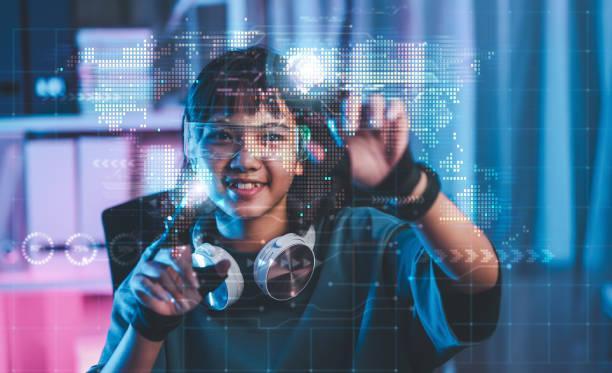The Future of Artificial Intelligence is a topic that promises both excitement and uncertainty. As AI technologies continue to evolve, they hold the potential to transform every aspect of human life, from healthcare to transportation. Understanding these complex developments can help us prepare for a future where AI plays an integral role.
“`html
The Evolution and Impact of AI Technologies
The field of artificial intelligence (AI) has been rapidly evolving over the past few decades, fundamentally altering various sectors of society. AI technologies have progressed from simple machine learning algorithms to complex systems capable of performing tasks that typically require human intelligence. These tasks include visual perception, speech recognition, decision-making, and language translation.
The impact of AI is evident across multiple industries. In agriculture, AI-driven machines are optimizing crop yields and pest control. In finance, AI algorithms predict market trends and detect fraudulent activities with unprecedented accuracy. In manufacturing, AI-powered robots enhance efficiency and production quality.
The most notable impact, however, is seen in how AI has changed our daily interactions with technology. Virtual assistants like Siri and Alexa have made AI a household phenomenon, simplifying tasks through voice commands. Automotive innovations, particularly self-driving cars, demonstrate how AI could revolutionize transportation.
As AI technologies continue to evolve, their impact is likely to grow even more profound. Breakthroughs in quantum computing and neural networks may soon allow AI systems to operate beyond current constraints, offering endless possibilities for advancements. Yet, as we harness AI’s potential, we must also remain vigilant about addressing the societal implications of these transformative technologies.
AI in Healthcare: Innovations and Challenges
AI is revolutionizing healthcare by introducing innovative solutions for complex medical challenges. From diagnostics to personalized treatment plans, AI systems are offering new ways to improve patient outcomes. Advanced algorithms can analyze vast amounts of medical data to identify patterns and predict diseases, allowing for early intervention and better patient management.
One of the most promising areas is the use of AI in medical imaging. AI applications can enhance the speed and accuracy of radiology by automatically interpreting MRI and CT scans. This not only helps in identifying anomalies faster but also reduces the burden on healthcare professionals.
Robotics, another facet of AI, is making significant strides in surgical procedures. Robotic surgical systems improve precision, reduce recovery times, and advance minimally invasive surgery technologies. Additionally, AI-assisted robots can aid in patient care, monitoring vital signs and alerting medical staff to potential emergencies.
However, several challenges persist in integrating AI into healthcare. Data privacy concerns are paramount, as AI systems require access to massive data sets, raising issues of patient confidentiality. Moreover, the cost of AI technology and the need for specialized infrastructure can be barriers to widespread adoption. Ethical concerns also arise regarding AI decision-making in life-and-death situations.
Despite these challenges, the potential for AI to transform healthcare remains substantial. As we overcome barriers and ethical considerations are adequately addressed, AI will continue to innovate healthcare delivery, reshaping the field in unimaginable ways.
Ethical Considerations in AI Development
As artificial intelligence becomes more ingrained in modern life, ethical considerations are increasingly critical in AI development. The power and potential of AI bring with them a host of moral and societal dilemmas that developers, policymakers, and end users must navigate.
One of the most debated issues is AI’s impact on employment. The ability of AI to perform tasks traditionally done by humans raises fears of massive job displacement. While AI can create new jobs in technology and data management, it could also lead to the obsolescence of roles in sectors like manufacturing and retail.
Another crucial ethical consideration is bias and fairness in AI algorithms. AI systems are only as unbiased as the data they are trained on. Inadvertent biases in data can lead to discriminatory practices, especially in sensitive areas such as hiring, law enforcement, and credit approval. Ensuring that AI systems promote equality and inclusiveness is a challenge that developers are constantly addressing.
Privacy concerns also loom large in the AI domain. The use of AI to collect and analyze personal data often leads to potential breaches of privacy. Striking a balance between leveraging AI for innovation and protecting individual rights remains a key focus for regulators.
Finally, the issue of responsibility and accountability must be addressed. As AI systems become autonomous, determining who is responsible for the actions of these systems becomes increasingly complex. Establishing clear guidelines and standards is essential to ensure that AI is developed and utilized ethically.
The Future of AI in Everyday Life
The future of AI in daily life is both exciting and transformative. AI technologies are gradually integrating into more aspects of our routines, enhancing convenience and efficiency. In the coming years, AI is expected to become even more ubiquitous, deeply embedding itself into the fabric of everyday life.
Smart homes are one of the most tangible manifestations of AI’s future impact. AI systems control lighting, climate, and security in homes, learning from the habits of inhabitants to optimize energy use and comfort. As these technologies advance, homes will become more intuitive, adapting to our needs seamlessly.
The concept of smart cities is also gaining traction, with AI playing a pivotal role in urban planning and management. AI technologies can optimize traffic flow, manage waste, and enhance public safety, leading to more efficient and sustainable urban environments.
In education, AI is personalizing learning experiences, catering to the needs and pace of individual students. AI-driven educational tools can identify student weaknesses and suggest tailored resources, improving outcomes and enabling teachers to focus on more creative aspects of teaching.
Entertainment and media are undergoing a revolution with AI’s involvement. From AI-generated music and art to personalized content recommendations, AI is shaping how we consume content and interact with media.
While the future promises endless possibilities, the integration of AI in daily life will undoubtedly raise new challenges. Balancing the benefits of AI with ethical concerns and ensuring inclusive access to AI technologies will be essential as society navigates this transformation.
Your Gateway to Digital Success
Are you ready to elevate your business to the next level? At 50us Digital Marketing, we have the expertise and tools to help your business thrive in the digital landscape. Our comprehensive services include digital marketing, website creation, sales page development, e-commerce solutions, and blog management. We specialize in managing paid traffic to boost your sales and attract more customers.
Visit our site at 50us.top and connect with us on Instagram at @agency50usdigital to explore how we can transform your business. Our dedicated team leverages cutting-edge strategies to drive results, offering you a competitive edge in your market. Partner with 50us Digital Marketing to maximize your online presence and see firsthand the benefits our tailored solutions bring to your business. Let’s embark on this journey to digital success together!
“`


























































